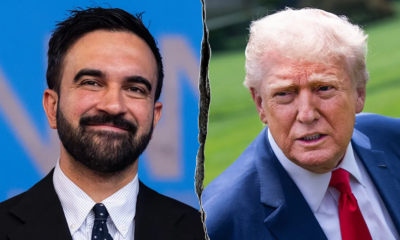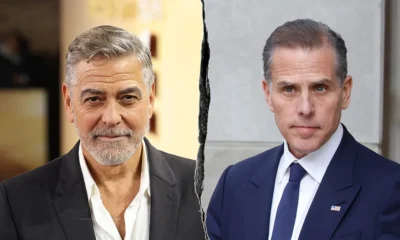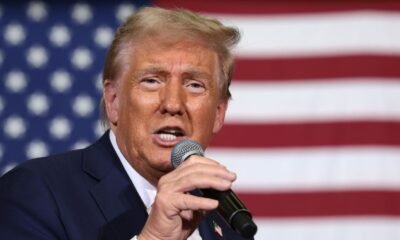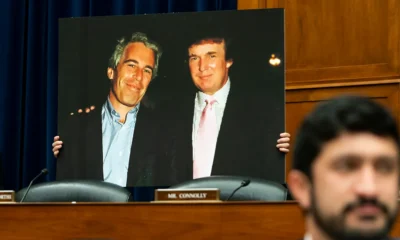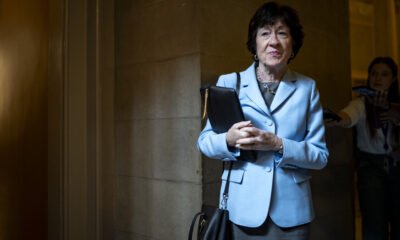Politics
Santa Ono Rejected as University of Florida President After Controversial Stance on Diversity and Protests
The former University of Michigan president Santa Ono controversial views on diversity programs and handling of campus protests lead to his rejection by Florida officials

Santa Ono, the former president of the University of Michigan, has been rejected as the next president of the University of Florida. Despite being the unanimous choice of the university’s Board of Trustees, Ono faced backlash from Florida’s Board of Governors, who voted 10 to 6 against his nomination. The decision has left the future of the University of Florida in flux and sent shockwaves through the higher education landscape.
Ono’s rejection comes after a series of controversial decisions during his tenure at Michigan, particularly surrounding his handling of diversity, equity, and inclusion (DEI) policies and his approach to campus protests. While he was initially supported by university leadership in Florida, his past decisions regarding pro-Palestinian protests and DEI initiatives in Michigan raised alarms among conservative lawmakers in Florida.
Geopolitical tensions have been a key focus of debate on college campuses, and Ono found himself in the center of controversy during the protests over the Israeli-Palestinian conflict. As president of Michigan, Ono faced criticism from some factions for being too lenient with pro-Palestinian demonstrators, including a protest encampment that took over a portion of the Michigan campus. His handling of these protests, and his subsequent decision to close Michigan’s Office of Diversity, Equity and Inclusion, were seen by some as insufficient in addressing the needs of the university’s diverse community.
His controversial decisions to cut DEI programs, as well as his perceived inaction during these tense times, led Republican officials in Florida to voice their concerns. Florida Senator Rick Scott criticized Ono’s handling of campus protests, calling him “weak” in addressing the pro-terrorist encampment that occupied Michigan’s campus, which some believed posed a threat to Jewish students. Scott, along with other conservatives, viewed Ono’s history as too aligned with far-left ideologies and voiced fears that he might impose similar policies at Florida’s flagship university.
Ono’s tenure at Michigan wasn’t all negative. He was praised for his focus on expanding financial aid programs and improving student accessibility, particularly through initiatives like the Go Blue Guarantee, which provides free tuition to qualifying students. His attempt to distance himself from the politically charged environment that existed during his presidency was seen as a means to adjust his approach for Florida, but it was not enough to quell the concerns of Florida’s Republican-dominated leadership.
The rejection of Ono has sparked debate about the state of higher education in the U.S., where political tensions are increasingly shaping the leadership of universities. Critics argue that the decision is part of a larger pattern of conservatives exerting control over educational institutions and limiting the scope of diversity programming. However, supporters of Ono argue that his record speaks for itself, and that his removal is the result of political maneuvering rather than an objective assessment of his qualifications.
As Florida moves forward with its search for a new president, the impact of this controversy remains to be seen. With the NATO summit coming up in Florida this summer, the rejection of Ono highlights the growing divide between the conservative policies being embraced by some states and the more liberal academic environments at leading universities.
Ono’s political career in higher education faces a setback, and his future in academia is uncertain. His next move will likely be watched closely, as many in the higher education community continue to grapple with the evolving pressures and debates surrounding the role of universities in political discourse.
Politics
The Man Who Predicted Trump’s Kennedy Center Takeover Bought the Domain That Mocked It
Meet Toby Morton, the South Park writer quietly turning internet real estate into razor-sharp political satire—one domain name at a time.

When the news broke that Donald Trump’s name would be added to the John F. Kennedy Center for the Performing Arts, most people reacted with outrage, applause, or confusion.
Toby Morton reacted differently.
He bought the domain.
Morton, a longtime television writer best known for his work on South Park, has quietly built a digital habit that feels equal parts prank, protest, and performance art. For years, he’s been snapping up domain names tied to political figures—largely from the American right—then filling those sites with biting satire that skewers power, ego, and how politics sells itself online.
The Kennedy Center controversy? Morton saw it coming.
ALSO READ : “She Never Made It Out…” Albany House Fire Claims Woman’s Life as Family Pleads for Help to Bring Her Home
Turning prediction into punchline
According to those familiar with his work, Morton registered domains anticipating how Trump’s name would be folded into legacy institutions—before the move even became public. When it did, his satire landed instantly, reframing the moment not as shock, but as inevitability.
His websites don’t just mock individuals. They parody systems—how authority brands itself, how political movements monetize outrage, and how institutions absorb controversy and call it tradition.
The tone is unmistakable: dry, unsettling, and painfully accurate.
From TV satire to digital guerrilla art
Morton’s background on South Park matters. The show’s legacy—pushing satire beyond comfort and into consequence—runs through his domain projects. But unlike television, these sites operate in quieter corners of the internet, discovered accidentally by curious users or journalists typing in a URL just to see what happens.
What they find is rarely subtle. Fake mission statements. Overblown slogans. Exaggerated logic that mirrors real political messaging just enough to feel uncomfortable.
It’s satire that doesn’t ask for your attention—it waits for you to stumble into it.

Why domain names matter now
In an era when political power increasingly lives online—through fundraising pages, branding campaigns, and viral narratives—owning a domain can be symbolic control. Morton understands that.
By buying domains associated with powerful figures, he interrupts the expected flow of political messaging. The page you think you’re visiting isn’t what you get. Instead, you’re forced to confront a caricature of the ideology itself.
It’s not hacking. It’s timing.
Satire without slogans
Morton rarely promotes his work publicly. There are no splashy announcements, no merchandise, no monetization. That restraint is part of the message.
Unlike the figures he targets, he isn’t selling certainty. He’s exposing it.
And in moments like the Kennedy Center uproar—where culture, politics, and ego collide—his approach feels almost prophetic. He didn’t just comment on the story. He prepared for it.
The quiet power of being early
Morton’s genius isn’t just in what he writes—it’s when he acts. By predicting how power will move, brand itself, and rename spaces, he turns the internet into a mirror held up just ahead of reality.
In a media world obsessed with reaction, Toby Morton operates on anticipation.
And sometimes, all it takes to make a point is owning the URL before history catches up.
Politics
The Untold Strain of Sundance Festival Insiders Describe the Emotional Highs and Breaking Points
A racially charged confrontation at a high-profile Sundance gathering turns violent, prompting an arrest and reigniting debate over hate speech and political rhetoric in public spaces.
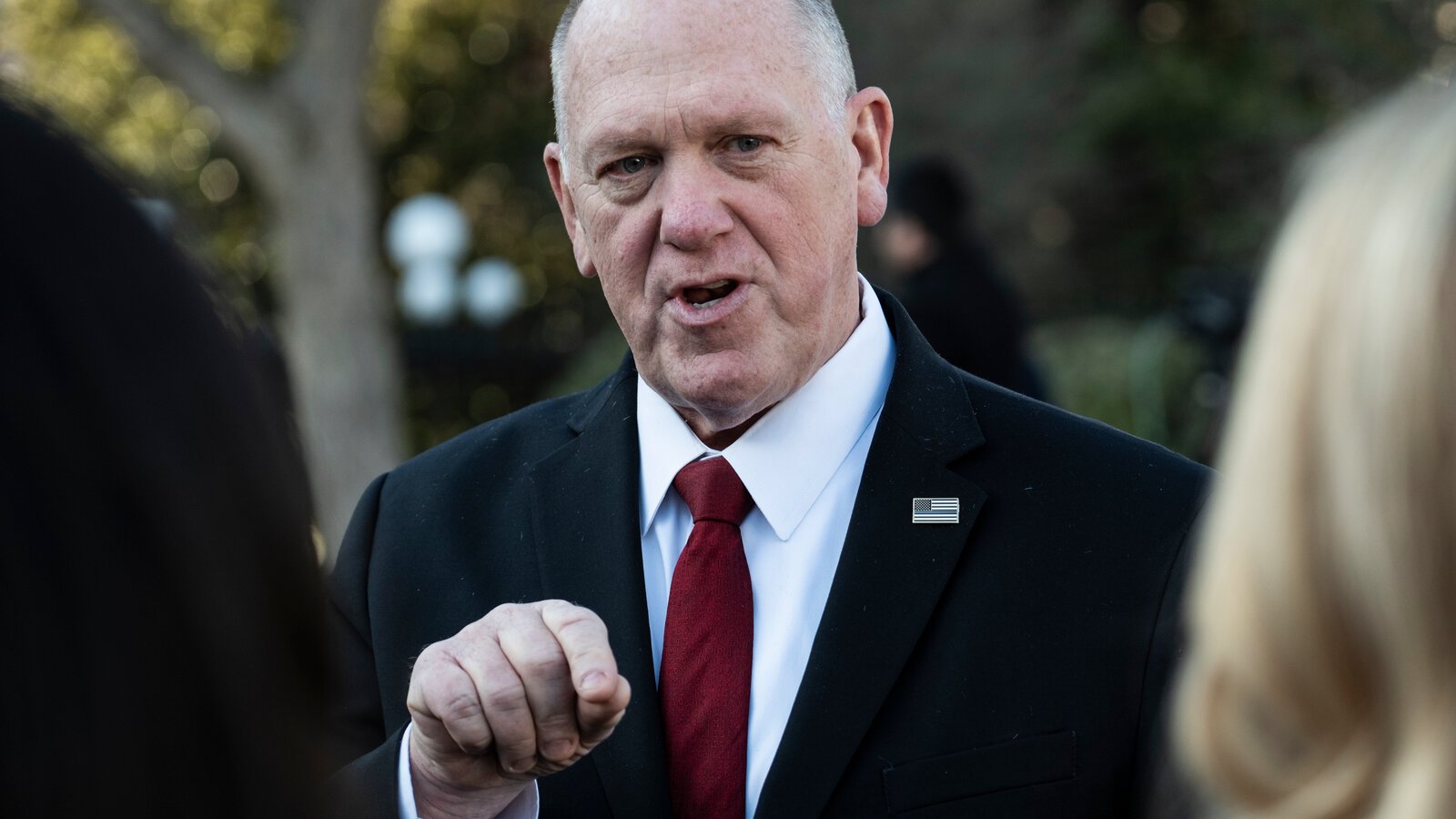
What was meant to be an exclusive celebration during the Sundance Film Festival ended in shock and outrage after a racially charged confrontation turned violent, leading to an arrest and widespread condemnation.
A man was taken into custody following an incident at a private party hosted by Creative Artists Agency (CAA) during Sundance, where he allegedly confronted U.S. Congressman Maxwell Alejandro Frost with racist remarks before physically assaulting him.
According to Frost’s account, the man loudly proclaimed how “proud” he was to be white, then escalated the encounter by telling the congressman that Donald Trump was “going to deport me” — a statement Frost confirmed was made moments before he was punched in the face.
The confrontation unfolded amid one of the most influential gatherings tied to the Sundance Film Festival, a space typically associated with artistic expression, political dialogue, and cultural inclusivity.
From Political Taunt to Physical Violence
Frost, the first Gen Z member of Congress and a prominent progressive voice, later confirmed the details of the incident, describing it as an unprovoked escalation rooted in racial identity and political hostility.
ALSO READ : “She Never Made It Out…” Albany House Fire Claims Woman’s Life as Family Pleads for Help to Bring Her Home
Witnesses at the event reported that the man appeared intoxicated and increasingly aggressive before security intervened. Law enforcement confirmed that the suspect was arrested on the scene and that charges are being reviewed.
While authorities have not publicly released the suspect’s name, officials noted that the investigation is treating the matter seriously given the racially charged language used during the encounter.
A Disturbing Pattern Beyond One Night
The incident has quickly drawn national attention, not only because it involved a sitting member of Congress, but because it echoes broader concerns about rising political aggression and racially motivated confrontations in public spaces.
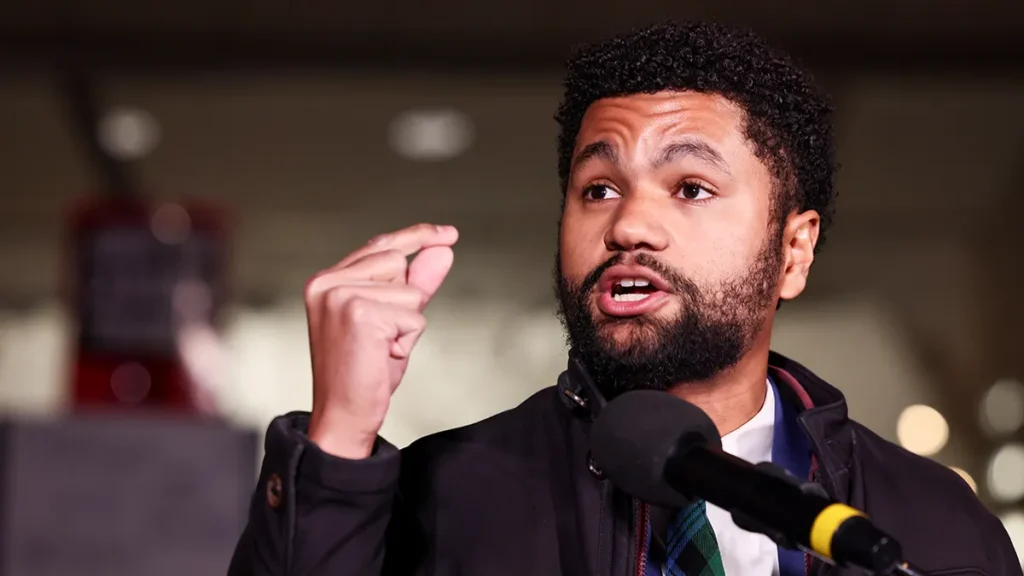
Civil rights advocates argue that rhetoric surrounding immigration, race, and nationalism has increasingly crossed from speech into action — especially in environments where alcohol, political identity, and social status intersect.
“This wasn’t just an argument,” one attendee said. “It felt like something much darker bubbling to the surface.”
CAA and Sundance Respond
CAA representatives emphasized that the party was meant to be a safe, private gathering and that they are cooperating fully with authorities. Festival organizers also distanced the event from official Sundance programming while condemning the violence.
The Sundance Film Festival, long positioned as a platform for marginalized voices and progressive storytelling, has faced renewed scrutiny over security protocols at affiliated private events.
Frost Breaks the Silence
Frost later addressed the incident publicly, underscoring that he would not be intimidated by threats or violence.
“No one should have to endure this — anywhere,” he said, adding that the incident reinforced the importance of confronting hate head-on rather than normalizing it.
Support poured in from fellow lawmakers, artists, and activists, many of whom called for stronger accountability when racially charged speech turns into physical harm.
More Than a Single Arrest
As the investigation continues, the episode has sparked a wider conversation about the responsibility of political leaders, cultural institutions, and event organizers in ensuring safety — especially at moments when rhetoric becomes combustible.
For many, the most unsettling part of the story is how quickly ideology transformed into violence — and how casually the threat of deportation was invoked as a weapon.
What happened at a Sundance party may fade from headlines, but the issues it exposed are far from temporary.
Politics
“Trump Deportation Threat Turned Into Assault”: Man Arrested After Shocking Sundance Incident
A racially charged confrontation at a high-profile Sundance gathering turns violent, prompting an arrest and reigniting debate over hate speech and political rhetoric in public spaces.

What was meant to be an exclusive celebration during the Sundance Film Festival ended in shock and outrage after a racially charged confrontation turned violent, leading to an arrest and widespread condemnation.
A man was taken into custody following an incident at a private party hosted by Creative Artists Agency (CAA) during Sundance, where he allegedly confronted U.S. Congressman Maxwell Alejandro Frost with racist remarks before physically assaulting him.
According to Frost’s account, the man loudly proclaimed how “proud” he was to be white, then escalated the encounter by telling the congressman that Donald Trump was “going to deport me” — a statement Frost confirmed was made moments before he was punched in the face.
The confrontation unfolded amid one of the most influential gatherings tied to the Sundance Film Festival, a space typically associated with artistic expression, political dialogue, and cultural inclusivity.
From Political Taunt to Physical Violence
Frost, the first Gen Z member of Congress and a prominent progressive voice, later confirmed the details of the incident, describing it as an unprovoked escalation rooted in racial identity and political hostility.
ALSO READ : “She Never Made It Out…” Albany House Fire Claims Woman’s Life as Family Pleads for Help to Bring Her Home
Witnesses at the event reported that the man appeared intoxicated and increasingly aggressive before security intervened. Law enforcement confirmed that the suspect was arrested on the scene and that charges are being reviewed.
While authorities have not publicly released the suspect’s name, officials noted that the investigation is treating the matter seriously given the racially charged language used during the encounter.
A Disturbing Pattern Beyond One Night
The incident has quickly drawn national attention, not only because it involved a sitting member of Congress, but because it echoes broader concerns about rising political aggression and racially motivated confrontations in public spaces.

Civil rights advocates argue that rhetoric surrounding immigration, race, and nationalism has increasingly crossed from speech into action — especially in environments where alcohol, political identity, and social status intersect.
“This wasn’t just an argument,” one attendee said. “It felt like something much darker bubbling to the surface.”
CAA and Sundance Respond
CAA representatives emphasized that the party was meant to be a safe, private gathering and that they are cooperating fully with authorities. Festival organizers also distanced the event from official Sundance programming while condemning the violence.
The Sundance Film Festival, long positioned as a platform for marginalized voices and progressive storytelling, has faced renewed scrutiny over security protocols at affiliated private events.
Frost Breaks the Silence
Frost later addressed the incident publicly, underscoring that he would not be intimidated by threats or violence.
“No one should have to endure this — anywhere,” he said, adding that the incident reinforced the importance of confronting hate head-on rather than normalizing it.
Support poured in from fellow lawmakers, artists, and activists, many of whom called for stronger accountability when racially charged speech turns into physical harm.
More Than a Single Arrest
As the investigation continues, the episode has sparked a wider conversation about the responsibility of political leaders, cultural institutions, and event organizers in ensuring safety — especially at moments when rhetoric becomes combustible.
For many, the most unsettling part of the story is how quickly ideology transformed into violence — and how casually the threat of deportation was invoked as a weapon.
What happened at a Sundance party may fade from headlines, but the issues it exposed are far from temporary.
-

 Entertainment1 week ago
Entertainment1 week agoHe-Man Wears a Suit Now… Nicholas Galitzine’s ‘Masters of the Universe’ Trailer Drops a Shock Fans Didn’t See Coming
-

 Entertainment1 week ago
Entertainment1 week ago“Comedy Needs Courage Again…”: Judd Apatow Opens Up on Mel Brooks, Talking to Rob Reiner, and Why Studio Laughs Have Vanished
-

 Entertainment1 week ago
Entertainment1 week agoOscars Go Global in a Big Way as This Year’s Nominations Signal a New Era: ‘The Academy Is Finally Looking Beyond Hollywood…’
-

 Entertainment1 week ago
Entertainment1 week ago“Dangerously Kinky… and Darkly Funny”: Olivia Wilde and Cooper Hoffman Push Boundaries in ‘I Want Your Sex’
-

 Entertainment1 week ago
Entertainment1 week ago“She Did Bring It All on Herself…”: Sony Executives Break Silence on Blake Lively Fallout Around It Ends With Us
-
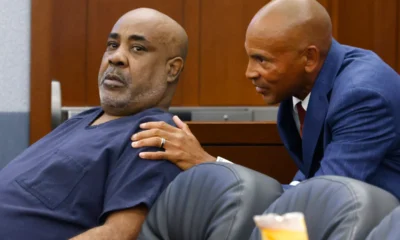
 Crime1 week ago
Crime1 week agoMan Accused in Tupac Shakur Killing Asks Judge to Exclude Critical Evidence
-

 Politics1 week ago
Politics1 week agoWhy Bari Weiss Says Pulling a ‘60 Minutes’ Story Was the Right Call — Even If It Looked Radical
-

 Entertainment1 week ago
Entertainment1 week agoOlivia Wilde and Cooper Hoffman Go Bold in I Want Your Sex—A Dark Comedy That Dares


